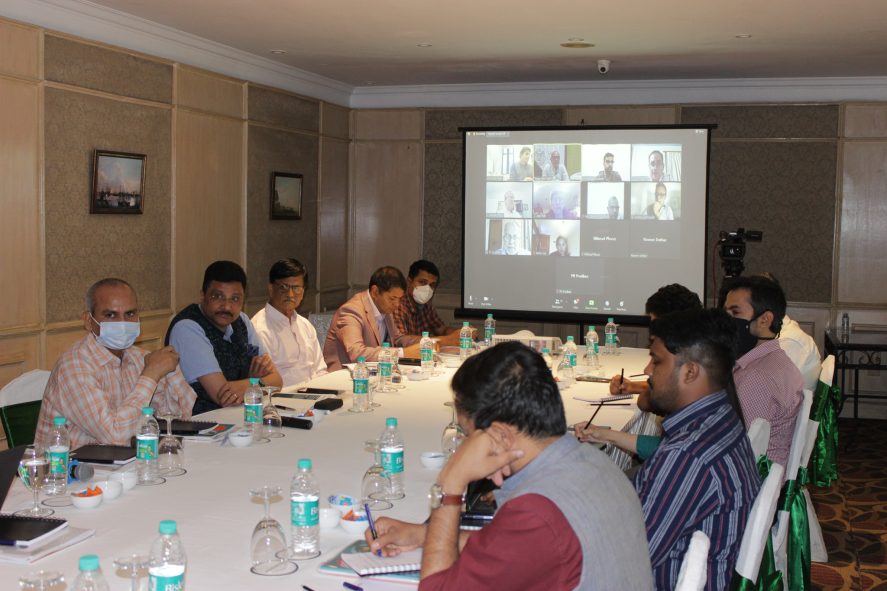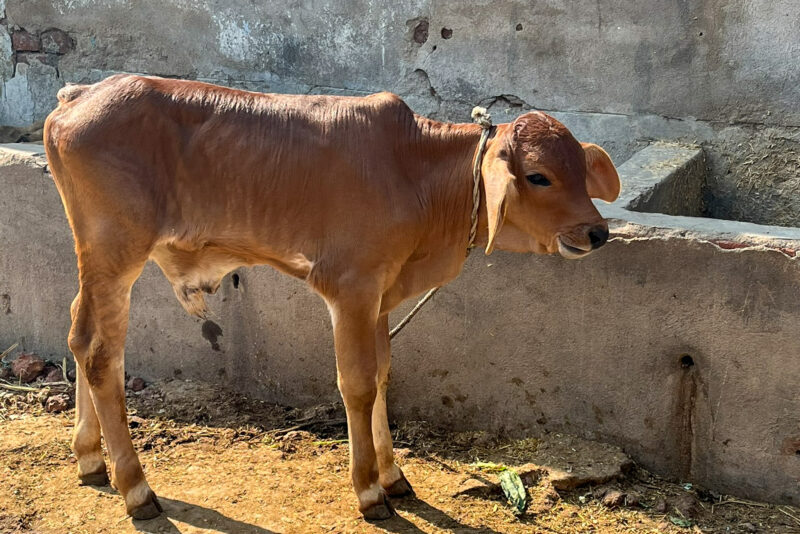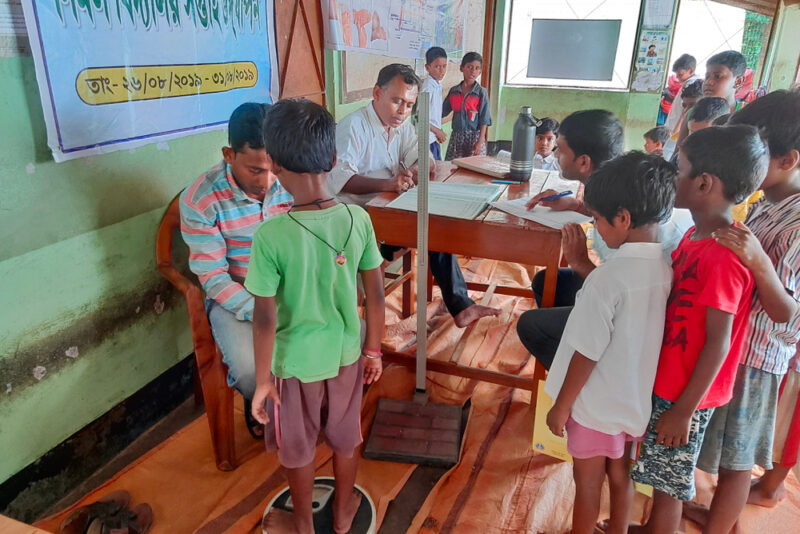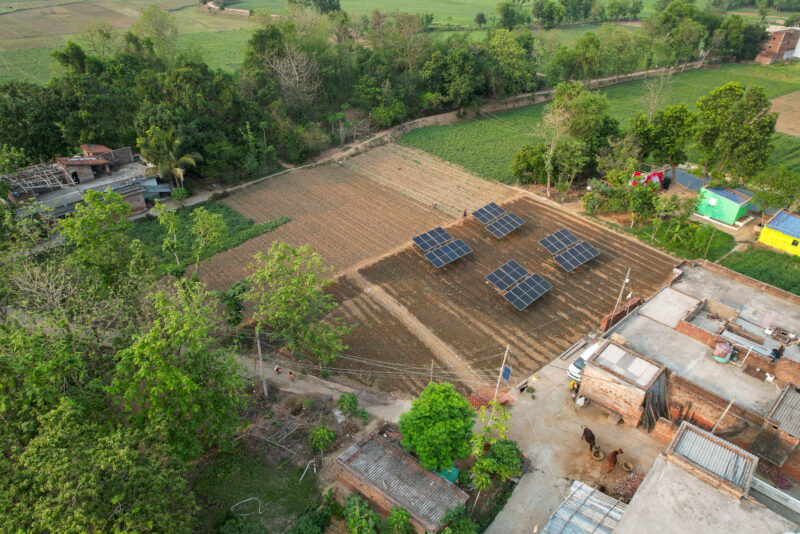TCI Convenes Expert Meetings to Spark Discussion on Agriculture and Climate Change

During two days of meetings on April 19 and 20, the Tata-Cornell Institute for Agriculture and Nutrition (TCI) brought together a host of experts to explore opportunities to lower agricultural greenhouse gas emissions in Bihar, India. The meetings were part of TCI’s Zero-Hunger, Zero-Carbon Food Systems project, which aims to develop policy options for minimizing the trade-offs between hunger reduction and greenhouse gas mitigation.
The first of the meetings, an expert workshop in New Delhi on April 19, featured scientists from Dr. Rajendra Prasad Central Agricultural University and researchers from global research institutions like the International Food Policy Research Institute (IFPRI) and the International Crops Research Institute for the Semi-Arid Tropics (ICRISAT), and the International Maize and Wheat Improvement Center (CIMMYT) along with policy experts from the Asian Development Research Institute (ADRI) and the Bihar state government.
Speaking at the start of the workshop, TCI Director Prabhu Pingali noted that while India had made great progress reducing hunger through increased food agricultural production, the costs of that system have important implications for the current climate crisis.
“Even as we celebrate the increase in productivity, we recognize that it comes at a significant environmental cost in terms of environmental degradation, and climate costs in terms of increases in greenhouse gas emissions,” he said. “As we push toward doubling farm incomes and doubling productivity, are we also in danger of doubling greenhouse gas emissions?”
Pingali expressed optimism at the opportunities for mitigating farm emissions, most notably through diversifying the crops produced by India’s agricultural sector, the introduction of new and emerging technologies, and the use of natural and organic farming techniques. He was also hopeful that increasing awareness of climate issues will lead consumers to demand more sustainable products.
“As we push toward doubling farm incomes and doubling productivity, are we also in danger of doubling greenhouse gas emissions?”
The workshop focused on both crop and livestock production, with experts from each area asked to identify high-priority areas for emissions mitigation and talk through strategies for increasing the adoption of mitigation interventions. Improving nutrient use efficiency, managing crop residues, and utilizing reduced-tillage farming methods were some of the priority areas identified for crop production. With regard to livestock, the experts stressed that since livestock production in Bihar occurs at the household level with small numbers of livestock per household, mitigation measures would have to be designed as such. The livestock interventions named included the promotion of traditional breeds and small ruminants.
Following the expert workshop, TCI co-organized a stakeholder consultation meeting with the Shakti Foundation and the Rainmatter Foundation on April 20 in New Delhi. Staff from TCI, Shakti, and Rainmatter met with representatives from the World Resources Institute (WRI), the Council on Energy, Environment and Water (CEEW), Digital Green, ADRI, The Energy and Resources Institute (TERI), the United Nations Environment Programme (UNEP), and other organizations. They discussed current and future climate change mitigation and adaptation measures for agriculture and land management, as well as policy frameworks for successfully introducing climate-friendly practices into national and state plans in India and Bihar.
As part of the Zero-Hunger, Zero-Carbon Food Systems project, TCI researchers use a combination of data, field-based research, and stakeholder consultations to identify the primary production, nutrition, and emissions challenges facing various agricultural production systems in India, as well as intervention options for each of them. They will also model the emissions associated with each production system and the impact of various interventions. Based on that analysis, they will generate a roadmap of mitigation methods designed to achieve net-zero greenhouse gas emissions without sacrificing productivity.
In addition to TCI researchers, faculty from across the College of Agriculture and Life Sciences (CALS) at Cornell University are involved, including Mario Herrero, a professor in the Department of Global Development, and Harold van Es and Andrew MacDonald, two faculty fellows from the soil and crop sciences section of the School of Integrative Plant Science.
The project is focused on Bihar because of the state’s proactive climate and food policies. Bihar has worked with the UNEP to revise its action plan on climate change, bringing it into alignment with national guidelines for reaching the Paris Agreement targets. It is also actively promoting climate-resilient crop production systems. One of India’s most impoverished states, Bihar suffers from some of the country’s highest rates of malnutrition. Its agricultural sector, which employs more than 70% of its population, is less productive than other states while contributing a larger share of greenhouse gases, with roughly 40% of its overall emissions coming from farming.
While concentrated on Bihar and India’s agricultural sector, TCI hopes that the project will offer a model to other developing countries.
“What we do in India has significant lessons that can be learned for other developing countries,” Pingali said.
Featured image: Representatives from civil society, academia, and government discuss greenhouse gas mitigation interventions at the expert workshop on April 19 in New Delhi, India. (Photo by Manoj Kumar/TCI)





